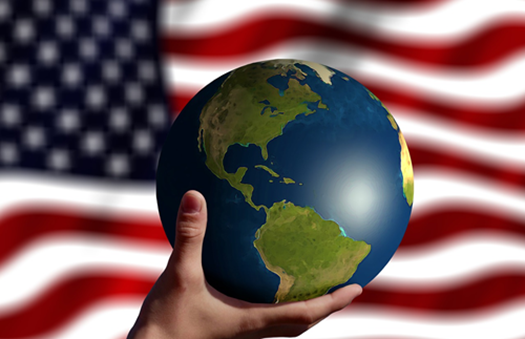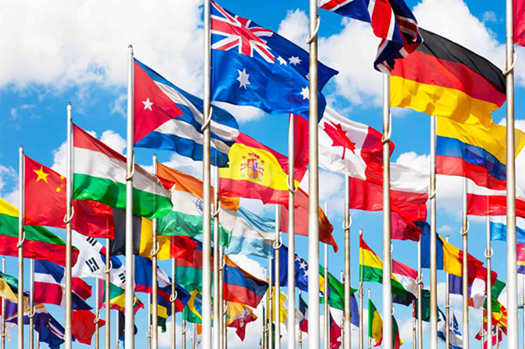Unit 8: Becoming a World Power (1867-1898) Overview
Unit 8: Becoming a World Power (1867-1898)

Unit 8: Becoming a World Power (1867-1898)

Unit 8: Becoming a World Power (1867-1898)
After the Civil War, Americans took advantage of the stable international balance of power to continue the dynamic process of westward expansion and building a strong and powerful economy. There were few changes in nation’s basic foreign policies; the overarching principles of isolation and neutrality generally remained firmly entrenched.
In 1894, Secretary of State Walter Q. Gresham of Illinois reaffirmed Washington’s “great rule of conduct” in commenting on what he deemed a questionable departure from the policy of “no entangling alliances”—an agreement with Germany and Great Britain to share control of the Samoan Islands. “Every nation, and especially every strong nation, must sometimes be conscious of an impulse to rush into difficulties that do not concern it, except in a highly imaginary way,” he noted.
The continuing national focus on domestic issues does much to explain why, despite its numerous flaws, the conduct of foreign relations continued unchanged. As late as 1894, an observer noted that the public was “less familiar with the duties of our diplomatic and consular agents than any other branch of the public service.” In a sense, this was logical, because diplomatic work was carried out overseas, where it could not be observed.
For most of the period, diplomacy remained mired in the past. The biographer of Secretary of State John Hay later described the Department in 1898 when Hay became Secretary as “an antiquated feeble organization, enslaved by precedents and routine inherited from another century, remote from the public gaze and indifferent to it. The typewriter was viewed as a necessary evil and the telephone was an instrument of last resort.”
 The global equilibrium, which had allowed the United States to grow and prosper in virtual isolation since 1815 was gone forever as the result of a short but shattering war. In 1898, U.S. domestic support for the independence of Cuba enmeshed the United States in a struggle with Spain over the fate of the island nation. The decision to aid the Cuban resistance was a major departure from the traditional American practice of liberal nationalism, and the results of that decision had far-reaching consequences. The 1898 Treaty of Paris ending the war gave Cuba its independence and also ceded important Spanish possessions to the United States—notably Puerto Rico, the Philippines, and the small island of Guam. The United States was suddenly a colonial power with overseas dependencies.
The global equilibrium, which had allowed the United States to grow and prosper in virtual isolation since 1815 was gone forever as the result of a short but shattering war. In 1898, U.S. domestic support for the independence of Cuba enmeshed the United States in a struggle with Spain over the fate of the island nation. The decision to aid the Cuban resistance was a major departure from the traditional American practice of liberal nationalism, and the results of that decision had far-reaching consequences. The 1898 Treaty of Paris ending the war gave Cuba its independence and also ceded important Spanish possessions to the United States—notably Puerto Rico, the Philippines, and the small island of Guam. The United States was suddenly a colonial power with overseas dependencies.
This assumption of colonial responsibilities reflected not only the temporary enthusiasms of 1898 but also marked a profound change in the diplomatic posture of the United States. The foreign policies of the early 19th century had less relevance at the dawn of the 20th century because the nation had changed. The United States had almost all the attributes of a great power—it stood ahead or nearly ahead of almost all other countries in terms of population, geographic size and location on two oceans, economic resources, and military potential.
Foreign policy had to change to meet these new circumstances. President William McKinley drew attention to the new situation in the instructions he gave to the delegation of American statesmen who negotiated the Treaty of Paris. “We cannot be unmindful that without any desire or design on our part the war has brought us new duties and responsibilities which we must meet and discharge as becomes a great nation on whose growth and career from the beginning the Ruler of Nations has plainly written the high command and pledge of civilization.”
Another contemporary observer, George L. Rives, extended this interpretation. “Whether we like it or not,” he wrote, “it is plain that the country is now entering into a period in its history in which it will necessarily be brought into far closer and more complex relations with all the other great Powers of the world,” an outcome that would leave established foreign policy outmoded. “We shall now and henceforth be looked upon as having cast aside our traditional attitude of isolation.”
This unit emphasizes how the United States began to look beyond its boundaries and expand its interests to make colonies of other countries and territories.
Unit Focus
- Reasons the United States wanted colonies
- Ways the United States gained territories in Caribbean, South America, and Pacific
- Ways the United States became a world power after Spanish-American War
- Examples of foreign policy concerning Hawaiian Islands during administrations of presidents Grover Cleveland and William McKinley
- Examples of United States colonial policy concerning Cuba
- Current status of American colonies
Vocabulary
Lesson Reading
Videos and Interactives (Click on Images to View Content)

